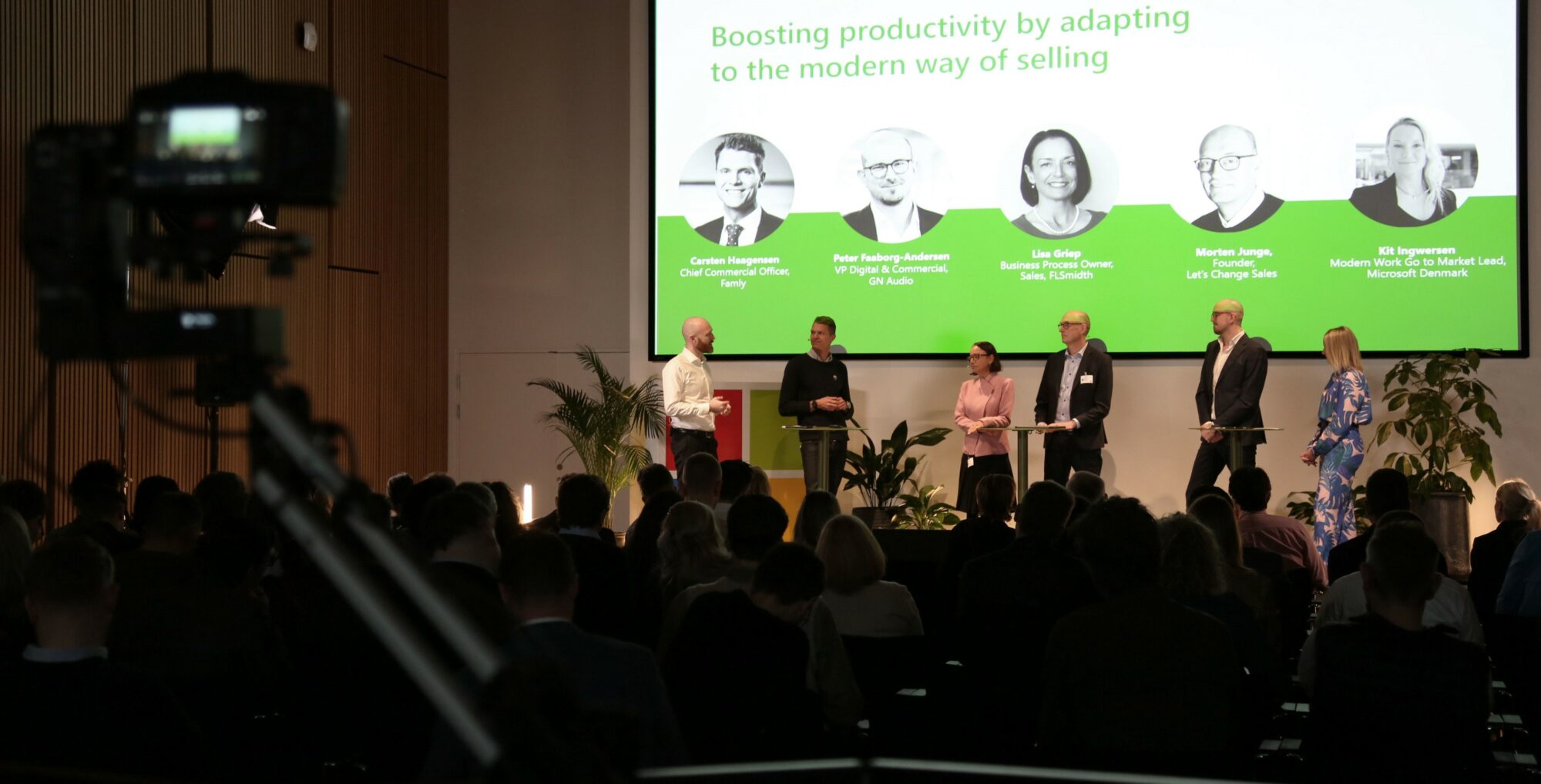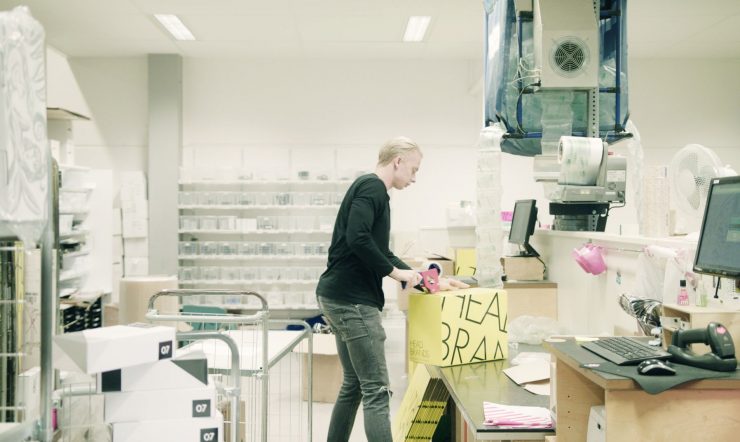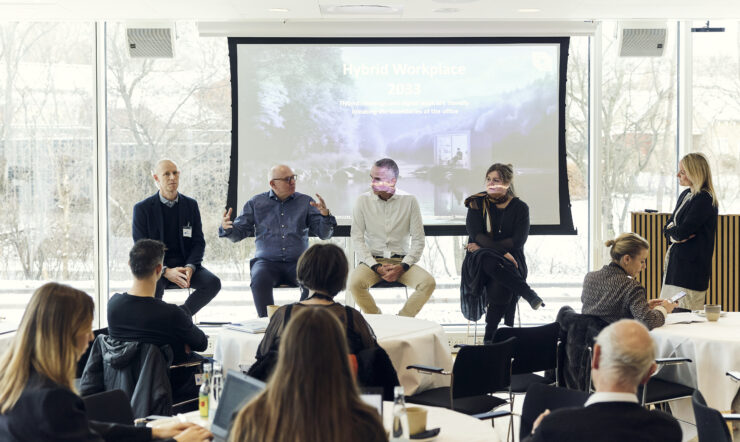Technology has revolutionized the way we do business transforming it into a dynamic world of endless opportunities – but also pitfalls as scaling use cases can seem like a barrier. However, with the help of AI and CRM solutions, companies can optimize their sales processes and allow sellers to focus on building stronger customer relationships. How are organisations leveraging this potential? To address this, we hosted the hybrid event “Supercharge Sales – A holistic approach to selling in modern organisations,” where sales- and CRM peers joined to share insights on how AI and technology can drive sales performance in modern organisations.
“We are going to talk about a theme that is literally evolving as we speak.” Our Modern Work Go-To-Market Lead, Kit Ingwersen, sets the stage for a morning focusing on sales performance. She is backed by her co-host Christian Koch-Bentzen, Go-To-Market Lead within Business Applications. He welcomes the first speaker stating that when touching upon digital sales and commercial transformations, one simply does not exist without the other.
The biggest driver since the internet
Thomas Wenstrøm, Partner at BCG, enters the stage with a focus on how advanced analytics can accelerate top-line growth. According to Wenstrøm, advanced analytics is the biggest growth driver since the internet. However, many companies struggle to scale value from advanced analytics. The key to success is a strict focus on value, selecting a few use cases to double down on, iteratively building technical and human capabilities, and giving people and processes twice as much attention as algo and tech. When selecting the first use case start with existing business problems (not R&D exploration), a simple problem aligned with current processes and ways of working, basic math to prove value, and constant MVP mode in small teams for rapid trial and error.
Thomas recommends not to sit around and wait, as the gap between winners and losers is widening. In his opinion companies could have an entirely data-driven sales approach within the next five years. “This is not science fiction, but proven use-cases. Companies can achieve substantial growth within months if they start now.” Thomas says.
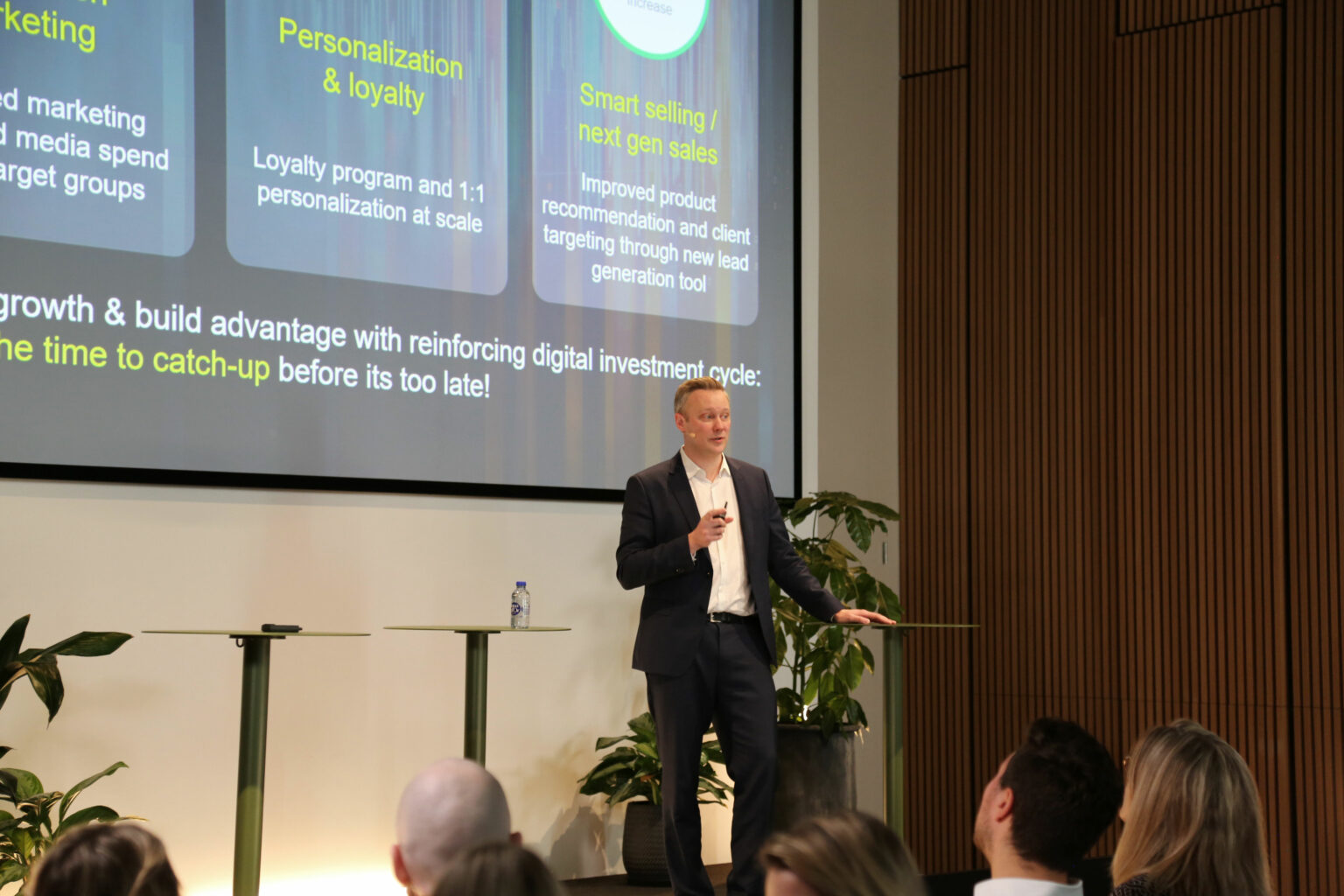
Thomas Wenstrøm
A magical moment for customer experience
The next speaker of the day enters the stage digitally. Charles Lamanna, CVP at Business Application & Platform, Microsoft, greets the audience from his home studio.
Lamanna recognizes that the CRM landscape has not changed much in the past 40 years. But now change is coming and coming fast. From people logging into systems to using applications that help drive and enable people to perform and produce. Charles believes that the new generative AI capabilities are game-changing. “Things that used to be impossible to build inside of an application are now right at our fingertips.”
Looking into the crystal ball, he predicts that we will go from people working side by side to people working side by side with AI. And that the combination of human expertise and AI will make us 25 percent more productive by 2026. The same value as the personal computer and the internet combined. “It is a magical moment for customer experience and technology,” he closes.
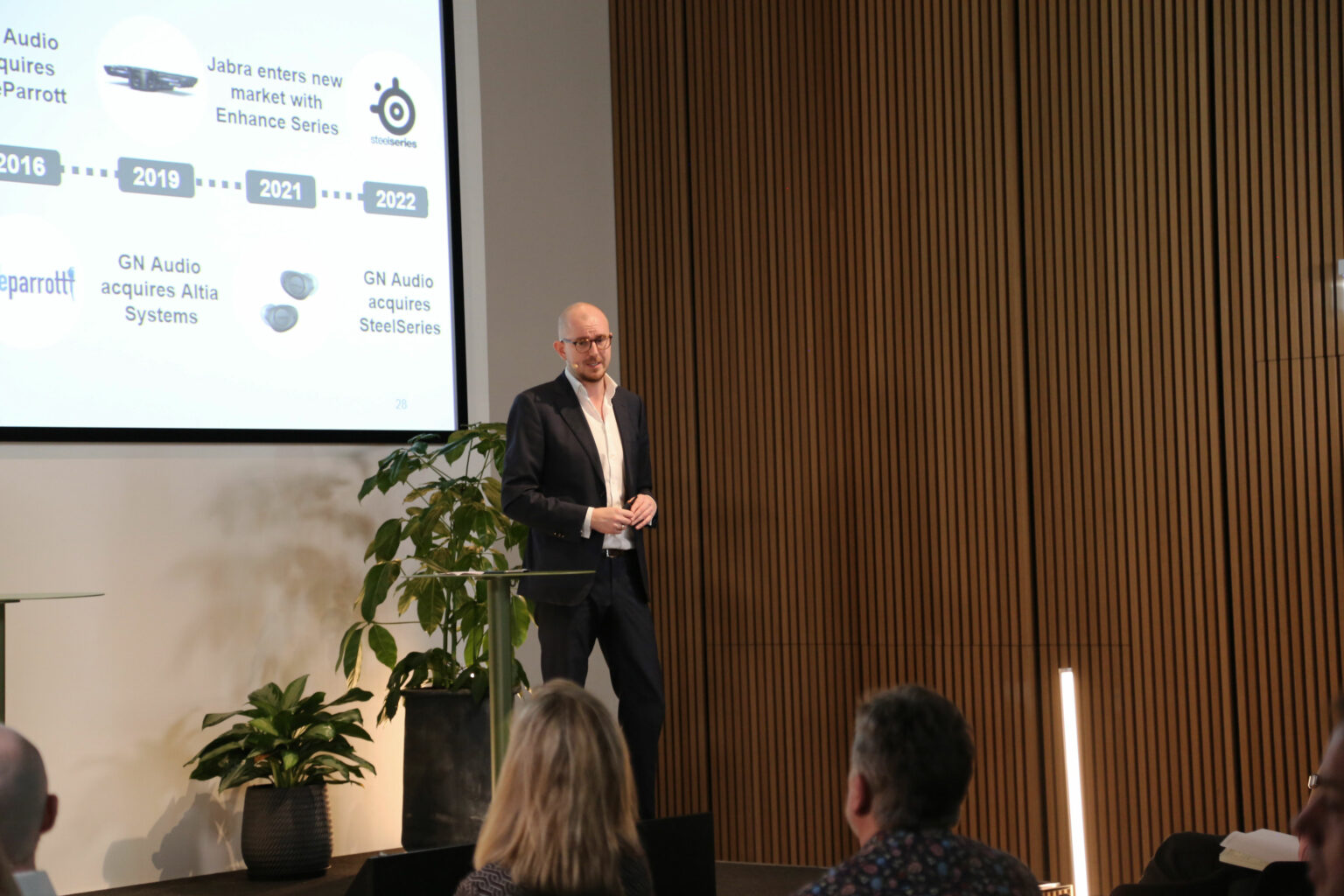
Peter Faaborg-Andersen
Sales depend on co-creation
Back in Lyngby, Peter Faaborg-Andersen, VP of Digital & commercial, at GN Audio, takes over with a presentation of the principles for successful commercial transformation. He lists the challenges influencing the direction of GN Audio’s commercial transformation program. This includes increased complexity from new categories, ensuring scalability, sales effectiveness, solid commercial tech stack, and a significant change in the macro environment and market dynamics driving pressure on financials.
Peter recommends considering five principles for successful commercial and digital transformation; “Co-creation”, “keep it simple”, “clarity on challenge/ opportunity – i.e. technology vs. people/process”, “clarity on success metrics”, and ”less is more”. “You will never be successful with changing anything if you consider it a headquarter exercise. You need to make sure that what you’re doing is for the commercial organization and together with the commercial organisation,” Peter concludes.
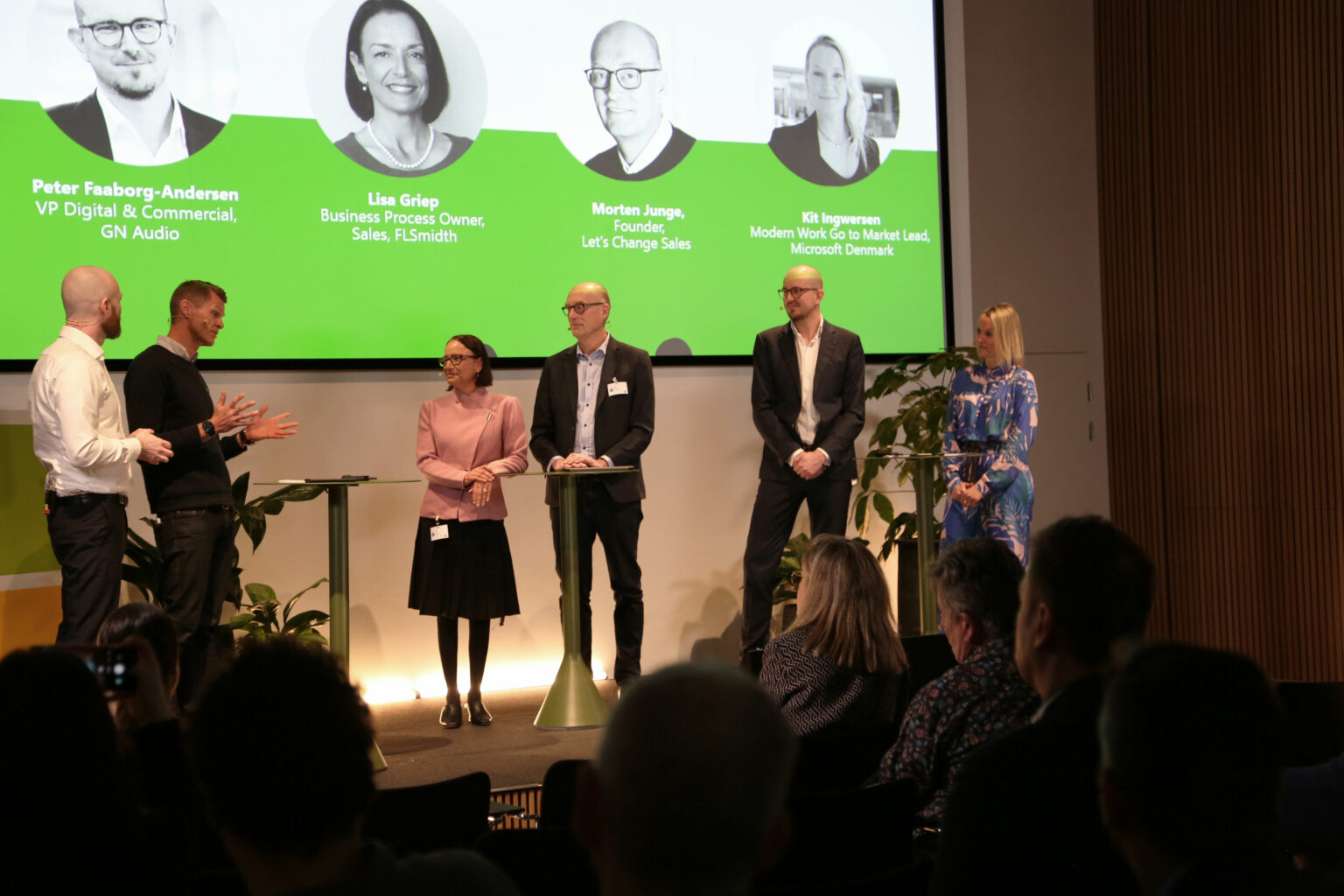
Panel debate
A non-negotiable journey
Co-creation and collaboration are words that keep being mentioned on stage, where the panel has taken over for a discussion on how to boost productivity by adapting to the modern way of selling. Lisa Griep, Business Process Owner in Sales at FLSmidth, says that they have come a long way with their CRM over the past 12 years by engaging salespeople in the process and asking them what they need in order to increase sales. “When you create that collaborative environment, your adoption rate goes up considerably”, she says.
Carsten Haagensen, Chief Commercial Officer at Famly, follows up with another perspective from a digitally native company where people typically have a curious change mindset and a profound recognition that your tech infrastructure is a go-to-market enabler and a competitive advantage. “For me, it is a non-negotiable journey to join,” Carsten agrees.
“If we don’t have people standing on the beer case preaching why we need to drive this forward, then we might as well not do it at all,” Kit Ingwersen, Modern Work Go To Market Lead at Microsoft Denmark, says. She refers to the importance of breaking down silos to succeed in sales and digital transformation, focusing on collaboration, productivity, and behavioral design across the organisation, and being aware of the aspects that drive and motivate employees working with sales.
Morten Junge, Founder of Let’s Change Sales, follows up with the importance of making people understand why we are doing this. “It is not just because we want to outsmart our people that we use advanced technology. But our customers are changing, so we also need to do things differently to stay relevant,” he says.
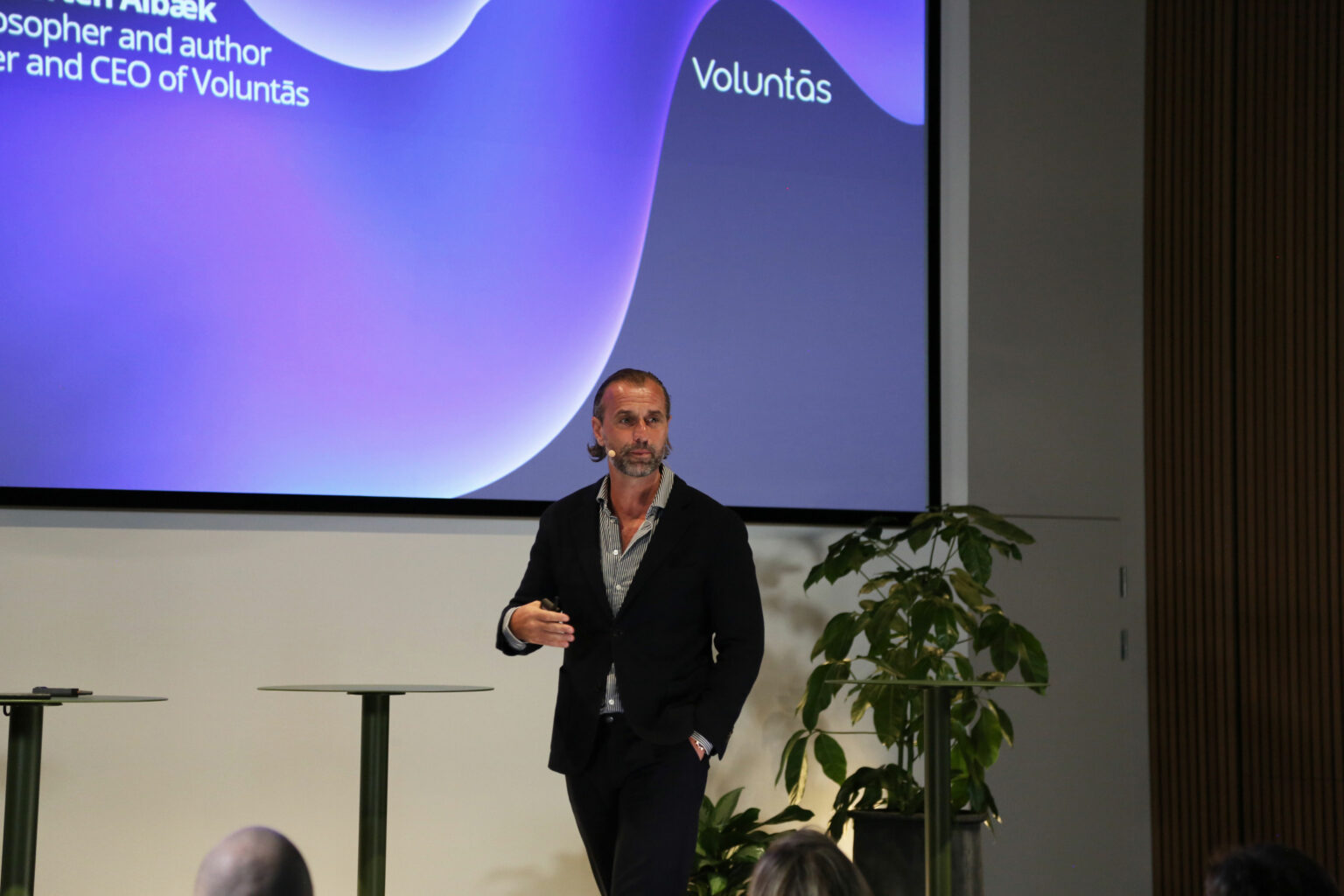
Morten Albæk
Performing with a purpose
“The leading indicator to engagement is a sense of meaning which includes purpose”. The words come from the last speaker of the day, Morten Albæk, Philosopher, Author, CEO, and Founder of Voluntas. He recently published a book called “False Truths in Life” about the thoughtless way of speaking that becomes a meaningless way of living, condemning phrases such as “time is money.” With the book, he wants to destroy the myth of the lonely genius. “At the end of the day, it is not the strength of the individual; it is the quality of the collaboration between the individuals that define what result you’re going to achieve,” he says, concluding that you don’t have to make significant changes to create a big influence. “It is the minor, more nuanced, really intelligent, tailored changes that create the greatest impact,” Morten Albæk concludes the day before Kit Ingwersen and Christian Koch-Bentzen thanked everybody for joining and taking part in a discussion that will keep evolving rapidly and interestingly.
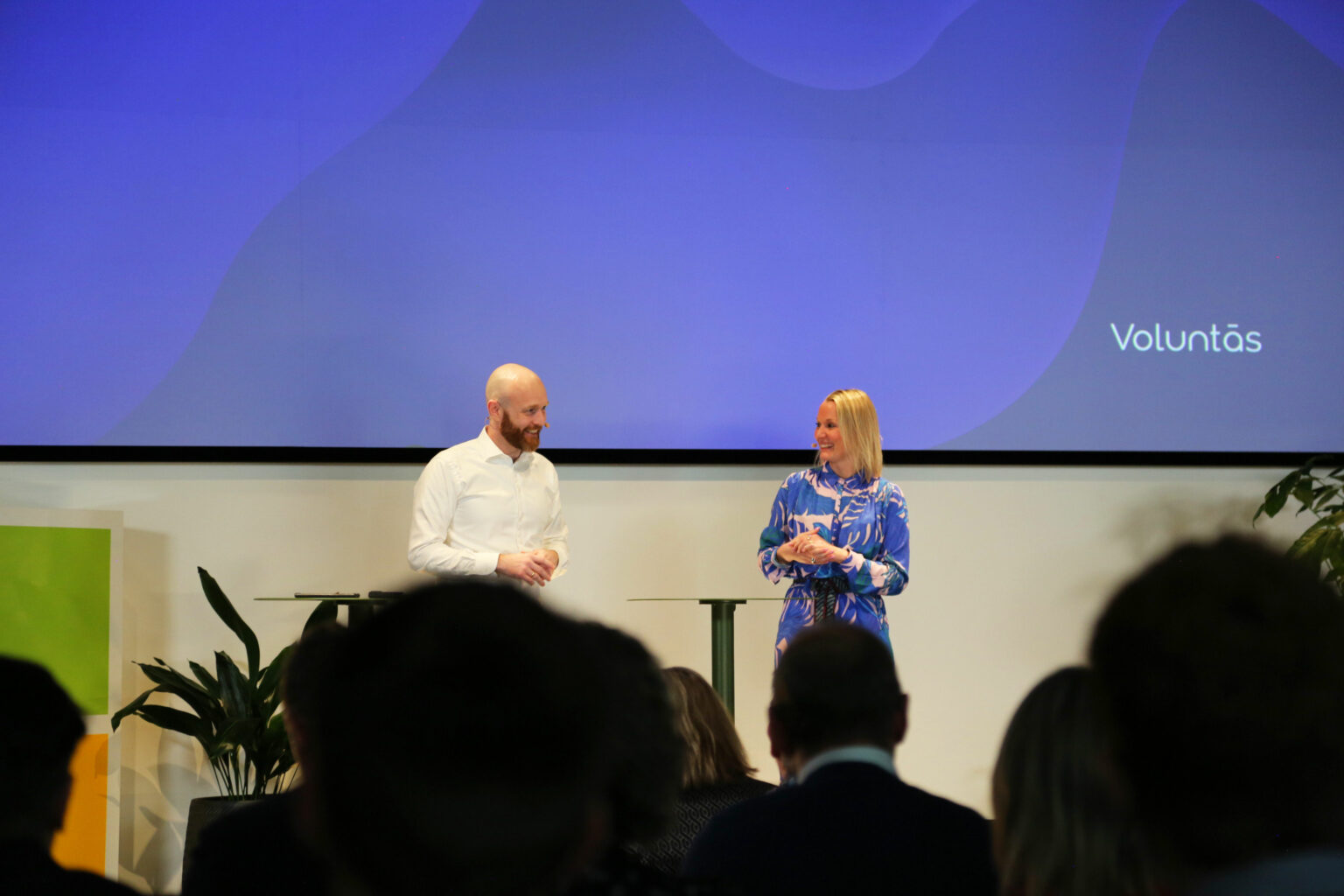
Christian Koch-Bentzen & Kit Ingwersen


